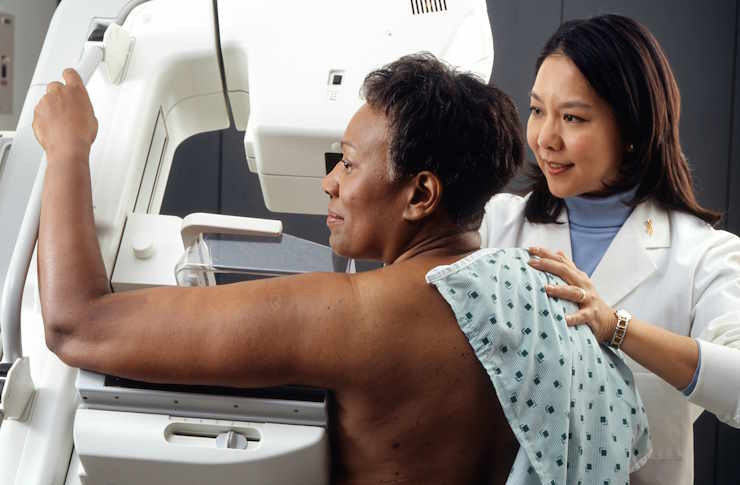Recognize the Signs: Crohn’s Disease in Seniors
Crohn’s disease can affect people of all ages, but for seniors, the symptoms can be easily overlooked. Understanding the early signs—such as persistent abdominal pain, fatigue, and unexplained weight loss—can lead to timely diagnosis and treatment. Recognizing the signs early can help improve long-term health and comfort.

Early Symptoms of Crohn’s Disease Older Adults Shouldn’t Ignore
The early signs of Crohn’s disease in seniors can be subtle and easily mistaken for other age-related health issues. Persistent diarrhea, often containing blood or mucus, is one of the most common initial symptoms. However, many older adults dismiss this as a minor digestive issue or attribute it to dietary changes or medications they’re taking for other conditions.
Abdominal pain and cramping, particularly in the lower right area of the abdomen, frequently accompany digestive symptoms. This pain may be intermittent at first, making it easy to overlook. Unexplained weight loss is another critical warning sign that seniors and their families should take seriously. When combined with persistent fatigue and a general feeling of being unwell, these symptoms warrant immediate medical attention.
Seniors may also experience a low-grade fever that comes and goes, along with a reduced appetite. Some individuals notice their symptoms worsen after eating certain foods, leading them to avoid meals and inadvertently contributing to nutritional deficiencies that can compound the problem.
How Crohn’s Disease Manifests Differently in Seniors
The presentation of Crohn’s disease in older adults often differs significantly from younger patients. Seniors frequently experience what’s called “colonic Crohn’s disease,” where inflammation primarily affects the large intestine rather than the small intestine. This pattern can lead to different symptoms and complications compared to the classic presentation seen in younger individuals.
Older adults with Crohn’s disease may have less severe abdominal pain but more pronounced systemic symptoms like fatigue, anemia, and general malaise. The inflammatory process can also affect other parts of the body, leading to joint pain, skin problems, and eye inflammation that might initially seem unrelated to digestive issues.
Another key difference is the slower progression of symptoms in seniors. While younger patients often experience dramatic flare-ups, older adults may have a more gradual onset that develops over months or even years. This slower progression can delay diagnosis, as both patients and healthcare providers may attribute symptoms to normal aging processes or other chronic conditions common in this age group.
Key Warning Signs of Crohn’s Disease in Older Adults
Several warning signs should prompt immediate medical evaluation in seniors. Rectal bleeding or blood in the stool is a red flag that should never be ignored, regardless of age. While hemorrhoids are common in older adults, any bleeding warrants professional assessment to rule out more serious conditions.
Changes in bowel habits that persist for more than a few weeks are significant. This includes not only diarrhea but also constipation or alternating patterns of both. Seniors should also be alert to signs of intestinal blockage, such as severe abdominal pain, vomiting, and inability to pass gas or have bowel movements.
Nutritional deficiencies can develop quickly in older adults with Crohn’s disease due to malabsorption and reduced food intake. Signs include unexplained anemia, vitamin deficiencies, and rapid weight loss. Family members should watch for changes in eating habits, energy levels, and overall physical appearance.
A Senior’s Guide to Understanding Crohn’s Disease Symptoms
Understanding the full spectrum of Crohn’s disease symptoms helps seniors recognize when to seek medical care. Beyond the primary digestive symptoms, Crohn’s disease can cause extraintestinal manifestations that affect quality of life significantly.
Skin problems, including painful ulcers or rashes, may develop in some patients. Eye inflammation can cause redness, pain, and vision changes. Joint pain and swelling, particularly in the knees, ankles, and wrists, can be mistaken for arthritis but may actually be related to Crohn’s disease.
Mouth ulcers are another common but often overlooked symptom. These painful sores can make eating difficult and may appear before digestive symptoms become apparent. Seniors should also be aware that stress, certain medications, and dietary factors can trigger symptom flare-ups, making symptom tracking valuable for management.
Crohn’s Disease in Later Life: What Families Need to Know
Family members play a crucial role in recognizing and managing Crohn’s disease in seniors. Because older adults may be reluctant to discuss digestive symptoms or may not recognize their significance, family observations become invaluable for early detection.
Families should be aware that Crohn’s disease is a chronic condition requiring ongoing management rather than a temporary illness. The unpredictable nature of flare-ups and remissions can be challenging for seniors who value routine and predictability. Understanding this pattern helps families provide appropriate support during difficult periods.
Treatment considerations for seniors often involve balancing the benefits of medications with potential side effects and interactions with other drugs. Older adults may be more susceptible to complications from both the disease and its treatments, making close medical supervision essential. Regular monitoring for osteoporosis, infections, and cardiovascular issues becomes particularly important in this population.
Nutritional support is often more critical for seniors with Crohn’s disease due to age-related changes in metabolism and absorption. Working with healthcare providers to develop appropriate dietary strategies and supplement regimens can help maintain health and prevent complications.
This article is for informational purposes only and should not be considered medical advice. Please consult a qualified healthcare professional for personalized guidance and treatment.




